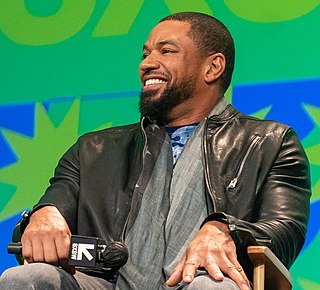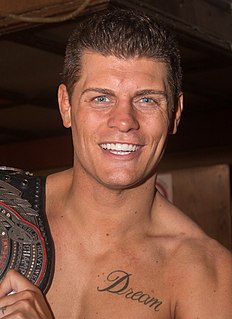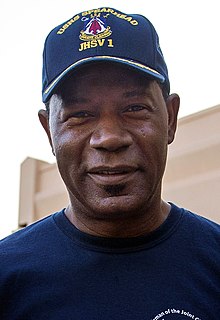A Quote by Guy Pearce
I always look at films as real stories with real people in real situations. That's why I struggle with the whole notion of calling someone the 'good guy' or the 'bad guy,' because I think we all have potential to do good things and all have the potential to do bad things.
Related Quotes
You know, I think a lot of times what happens when we as actors know we're playing a bad guy is we get into bad guy mode. You know what, man? In real life, bad people do good things too and good people do bad things. So you don't necessarily have to be the stereotypical bad guy to still do bad things.
In a traditional Western there's always the bravado, and it's almost like they're winking that they know they're in a Western - "Look how good I can spin my gun." In real life, when the bad guy kills somebody, or they're bad guy friend gets killed, they're upset, too, which is not typical in Westerns.
I love things that are brave enough to be nakedly about what our lives are actually built of, when you're wild about someone, or you love something, or you're a fool, or you embarrass yourself. And I don't think the answer is cynicism. Cynicism is not the cure for sentimentality. Cynicism is its own form of sentimentality. For example, I tried to watch Breaking Bad. After three episodes, I thought, I don't like this guy. I don't care about him. But you can see why people tell themselves that they think this is real. But real doesn't mean bad.
When you're playing a good character, you have an idea that you're playing the hero and the good guy. Actually, I think you're more stymied playing the good guy than you are the bad guy. As the bad guy, you have no inhibitions. Nothing stops you from doing what it is you feel you have to do. You do it because it's what's required.
I think if you read the story as bad guy turns good guy, then clearly it is a cliché. But my experience, when I spent three years working with young people in the townships on issues principally around HIV/AIDS, is that people are usually neither entirely good or bad. They are usually variations of both. Just because someone is a carjacker doesn't mean they are a ruthless cold-blooded murderer.


































